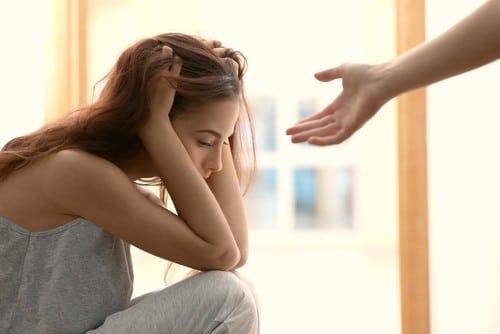Depression Types, Causes, Symptoms, & Treatment
Depression is a very common problem and with the acknowledgment and acceptance of mental health issues in this day and age, it has been gaining more attention. Years ago, there used to be very harsh stigmas against people with mental health issues. Despite these stigmas, though it has become more acceptable to acknowledge one’s problems, seek help and be open about it. It’s important to know about depression because you or someone you know may be suffering from it. What Is Depression?
What Is Depression?
Depression is when a person feels intense sadness and has certain symptoms. Of course, life is full of ups and downs, and people frequently go through periods of sadness. There are differences between typical sadness and depression. For example, sadness is usually triggered by particular things, and it usually goes away after shorter periods of time. Sadness can be solved more easily by talking about one’s frustrations and venting. However, if a person is persistently sad for more than two weeks then he/she may have depression. Signs And Symptoms
There are many signs and symptoms of depression. One symptom is always feeling fatigued and tired, even when a person has slept a lot. Many people with depression report sleeping for as long as 10, 12 or 15 hours, only to wake up feeling tired and lethargic for the rest of the day.
The lethargy that depression causes may be one of its most difficult symptoms. This is because lethargy tends to seep into people’s everyday lives. Some people end up doing tasks slower, which can affect productivity at work. Another difficult symptom of depression is mind fog and difficulty concentrating. Again, this can affect people negatively in work and school.
People who feel tiredness, lethargy, mind-fog and a loss of concentration from depression may blame themselves for being “lazy.” The blame and self-loathing that people with depression inflict upon themselves can make their depression even worse.
On the other end of things, people with depression may have difficulty sitting still and may exhibit a lot of energy.
Some other symptoms include feelings of hopelessness, worthlessness, guilt and apathy. Many people with suicidal thoughts suffer from suicide ideation. A portion of the people who suffer from this attempt suicide. Major Depressive Disorder
Types of Depression
Major Depressive Disorder is a depressive disorder that is characterized by a lack of interest in activities, changes in weight, fatigue, difficulty concentrating, thoughts of suicide, thoughts of death, depressed mood, changes in sleep and changes in weight. Persistent Depressive Disorder
Persistent Depressive Disorder is a depressive disorder that lasts for at least two years. A person has Major Depressive Disorder when he/she experiences more depressed days than non-depressed days. People with this type of depression often go through period of time in which they are not depressed. These periods of time usually last for less than two months. The depression can be anywhere from very mild to very severe. The symptoms of Persistent Depressive Disorder are generally not as severe as Major Depressive Disorder. The symptoms include oversleeping, feeling guilty, irritability, anger, fatigue, hopeless feelings and trouble concentrating. Postpartum Depression
Postpartum Depression affects women during and after pregnancy. It happens as a result of the hormonal fluctuations that pregnancy brings about. If left untreated, Postpartum Depression can last for up to a year. The symptoms of it include severe mood swings, feelings of being inadequate, social withdrawal, panic attacks, anxiety, thoughts of self harm and thoughts of harming one’s baby. Seasonal Affective Disorder
Seasonal Affective Disorder is a type of depression that hits people in the wintertime as a result of a lack of sunlight and warmth. People who have Seasonal Affective Disorder tend to get depressed and gain weight during the wintertime. Bipolar Depression
Bipolar depression is a type of depression that happens when a person is bipolar. People who are bipolar experience intense mood swings that last days and/or months at a time. Manic episodes include grandiose delusions, impulsiveness, sleeplessness and elevated moods. Depressive episodes include extremely low moods. Between each episode, a person may experience a normal level of feelings. Treatment of Depression
Treatment of Depression
There are various ways to decrease depression without taking medications. For starters, some people with depression need a routine. Depression can make a routine melt away, leaving people with an endless progression of days that all melt into each other and fly off. On the other hand, not having a routine can cause or worsen depression.
Exercise is also another good route to go down when it comes to depression. It helps by helping the body to release feel-good endorphins. The body needs regular exercise, and something so natural that the body needs is bound to work wonders on depression.
A person who is feeling depressed should also keep track of their diet. Perhaps he/she is suffering from over nutrition and is consuming too much sugar, salt, carbs or other nutrients. On the other hand, maybe the person is suffering from under-nutrition and isn’t getting enough of some nutrients.
Sleep is very important when fighting depression. Of course, when a person sleeps too much and still feels fatigued, this is a problem. However, not getting enough sleep can cause or worsen depression.
Another way of fighting depression is logically thinking through negative thoughts that might come your way. For example, you might come to an extreme conclusion, such as, “No one likes me.” You could counter such a thought by thinking, “Well, is there really any proof of that?” More seriously, some people may come across the idea that suicide is the best way out of how they feel. People who come across this thought can counter it by thinking about how suicide is really not the answer.
Doing something new is another way to fight depression. Partaking in a new activity or going to a new place may be the one thing that a person needs to fight their depression.

Taking part in social activities such as volunteering is also another way to fight depression. A person who volunteers is exposed to other people and is given a purpose.
Professional Support and Counseling
A great way to fight depression is to find people who you trust to talk about your problems with. These people can be friends, family and/or mental health professionals. You should not be afraid or ashamed to talk about your problems. Anyone who judges you should be embarrassed or ashamed.
A person with depression can go to a depression treatment center where depression counseling is available. it is worthwhile to go to a depression treatment center because the professionals may have useful insights that one would not have realized otherwise. Depression counseling can be very effective. The Medication Route
Some people are opposed to taking medications, though there are people out there who claim that, in their situations, taking medication has been most helpful in their lives. Some of the types of antidepressants that people take include selective serotonin reuptake inhibitors, serotonin and norepinephrine reuptake inhibitors, tricyclic antidepressants and monoamine oxidase inhibitors.
In conclusion, depression is a serious mental illness that lasts for more than two week and comes under various conditions. It can exist as a result of another disorder, such as bipolar disorder or the condition that a woman’s body is in after pregnancy, or it can exist on its own. It can be situational or just happened for unchangeable reasons.







